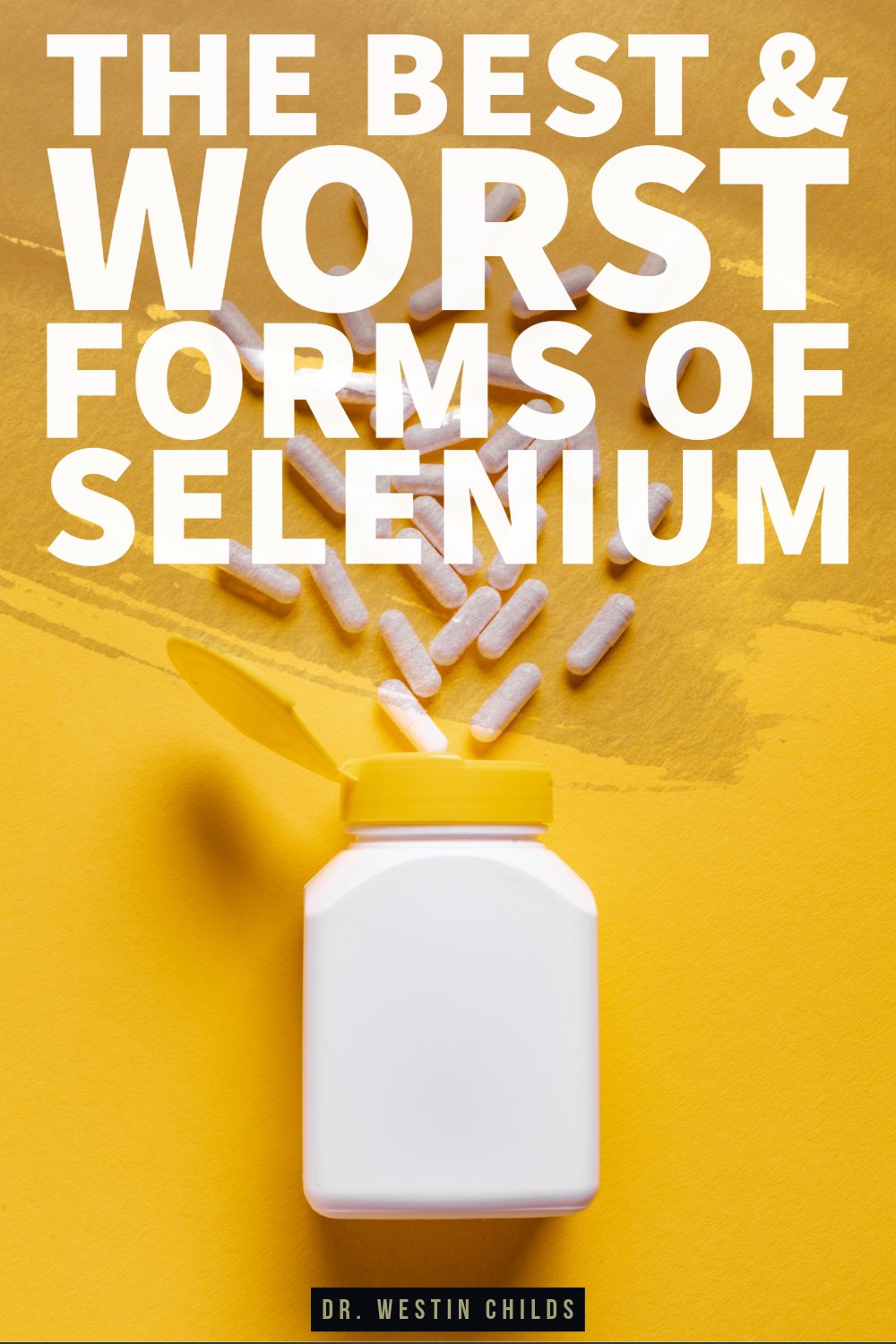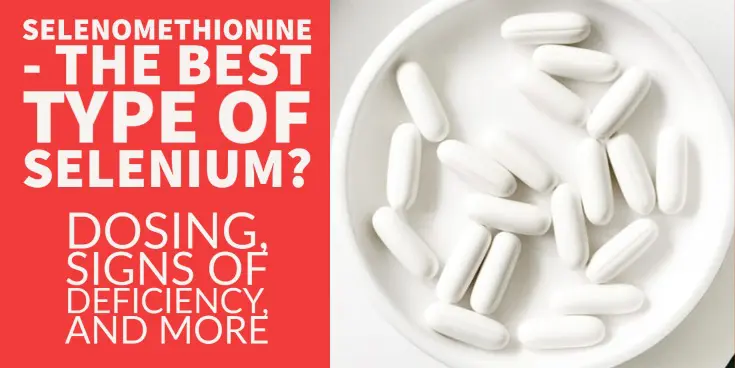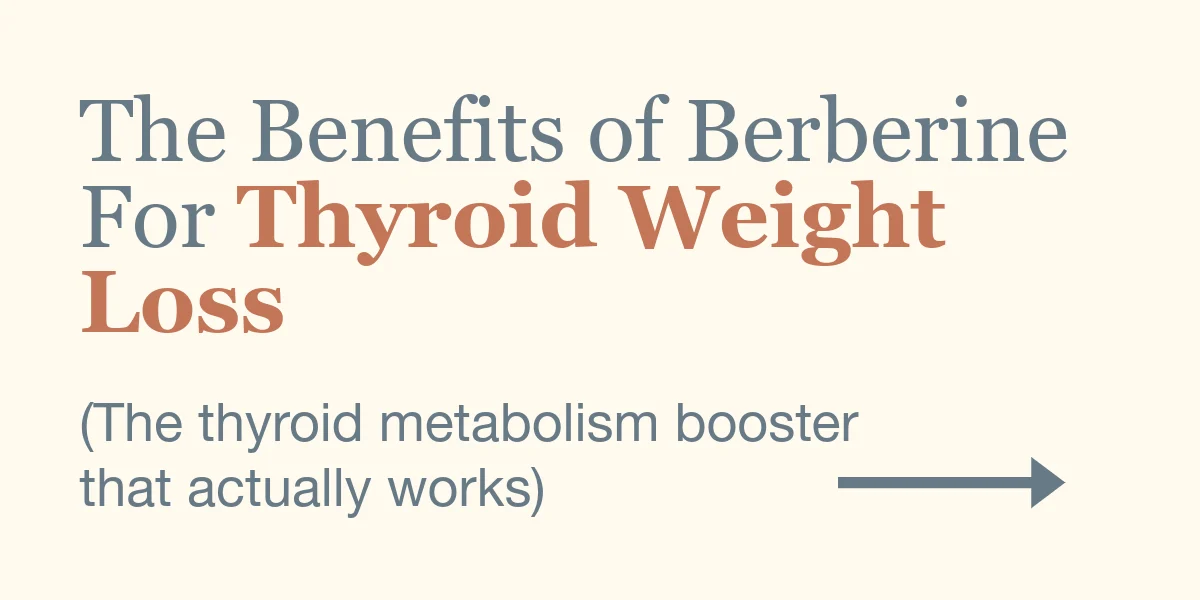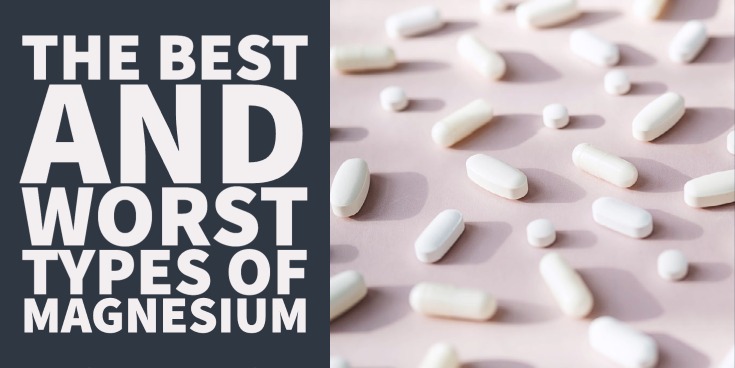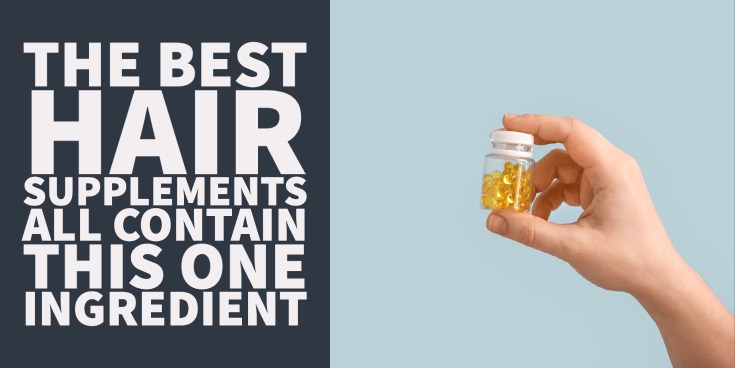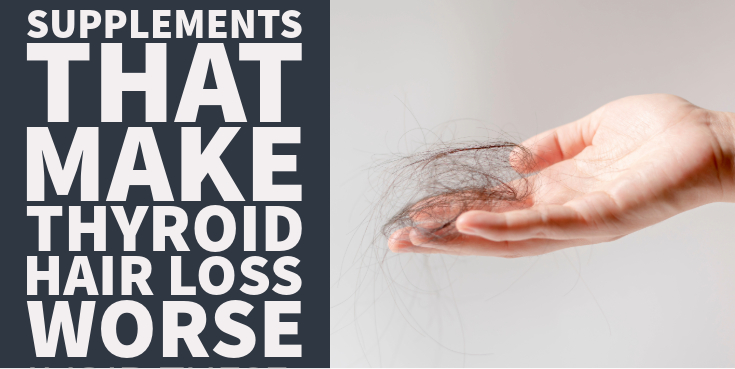Selenium is an essential (required) nutrient that your body must have.
If you don’t have enough, you will suffer symptoms ranging from hair loss to thyroid problems to fatigue and many others in between.
Not only is it required for optimal health, it’s fairly common for people to suffer from a deficiency (1).
This happens because selenium is only found in certain foods and because the selenium content in food has diminished over the last several years from modern farming techniques (2).
This is common knowledge among certain groups of people, especially those who have thyroid problems.
Which is why over-the-counter selenium supplements have become so popular.
But here’s the deal:
Not all selenium supplements are created equal and some of the supplements which contain ‘selenium’ have inorganic forms that are not usable by the body.
And if you are using one of these low-quality supplements then you won’t be getting the nutrients you think you are.
This is where our good friend selenomethionine steps in.
The Selenomethionine Solution
Selenomethionine is an organic form of selenium which is the same form naturally found in foods.
It gets its name because it is bound to the amino acid methionine.
Is selenomethionine selenium?
Yes, and no.
Yes, because it contains selenium, and no because selenium is often used as a broad term to define anything that might ultimately turn into selenium after digestion (even if this process isn’t very efficient).
This brings us to the topic of this article:
How do these different forms stack up against one another, where does selenomethionine fit in, and how do you know if you need to take it?
Let’s jump in…
What does Selenium do for the Body?
If you are reading this then the chances are high that you are probably already well aware of the importance of selenium.
But let me just remind you of a couple of key points:
Selenium powers a group of enzymes that are known to be selenium-dependent (3).
In other words, these enzymes do not work unless selenium is present.
If it’s not there, or if it’s present at sub-optimal levels, then these enzymes will only function at partial capacity.
But because these enzymes are so unique and important, a slight reduction in their function may result in serious symptoms for you.
These selenoproteins, as they are called, power the production of important anti-oxidants such as the master antioxidant glutathione.
In addition, they help control free radicals in your cells and prevent your own body from damaging itself.
This is why thyroid patients with Hashimoto’s like to supplement with selenium.
These enzymes also have other important functions such as helping your body produce energy in your mitochondria, activate thyroid hormone, develop muscle, support the immune system, and balance other physiologic processes.
The bottom line?
You need these enzymes to function at 100% if you don’t want to worry about things like thyroid problems, fatigue, hair loss, or getting sick all of the time.
Which Form of Selenium You Take Matters
As I mentioned earlier, not all formulations of selenium are created equal.
Like other nutrients, selenium can be bound to different carriers which can improve its bioavailability (how much your body absorbs and uses).
As the case may be, the carrier chosen can either amplify absorption or hinder it.
Knowing this, why would you suspect some supplements to contain inferior or lesser versions of selenium?

Because of cost.
It costs more money to bind selenium to naturally occurring substances than it does to take an inorganic form, throw it in a supplement, and call it a day.
And if you aren’t someone who understands these different forms, you may be inadvertently purchasing a cheaper supplement that won’t do what you expect it to.
When it comes to selenium formulations, selenomethionine is one of the best forms available.
But it’s not the only good form out there because selenium glycinate complex is also just as good.

These forms are considered organic and the same form that is naturally found in food.
Brazil nuts, for instance, which are the single most potent food source of selenium, contain 96% of their selenium content as selenomethionine.
This organic form of selenium is more absorbable and usable by the body (4).
These are, by far, the best forms to use.
In terms of those you should avoid, these include the inorganic forms such as selenite and selenate.
They happen to be considerably cheaper than the organic forms which is why you will tend to find them in cheaper or lower-quality supplements.
Also, be sure to watch out for people who combine both selenomethionine and selenite into a ‘complex’.
If they don’t disclose what percentage of the selenium is selenomethionine and which is selenite, then you may be getting a supplement that contains mostly inorganic selenium.
Signs You May Need to Supplement with Selenomethionine
How do you know if you need to use selenium?
It’s actually fairly easy to tell, and also very safe to supplement with (as long as you follow a few important directions).
It’s far better to look at your SYMPTOMS instead of serum lab values when it comes to diagnosing selenium deficiency.
Even though some lab companies may have tests available for selenium and other micronutrients does not mean that these are accurate nor should you pretend that they are.
It’s incredibly difficult to assess nutrient deficiencies in the body because these nutrients are primarily found INSIDE of your cells.
And when you get a blood draw guess what you are checking?
Not the amount of nutrients in your cells but the number of nutrients floating around in your bloodstream.
You can make inferences on what that means for your cells but I find these inferences to be hit or miss and often very inaccurate.
A better way to determine if you have a deficiency is to simply take a look at your symptoms, your diet, and your lifestyle.
For instance:
Are you consuming foods that are naturally high in selenium?
Are you consuming foods that are naturally high in nutrients such as whole foods (on a DAILY basis) or supplements fortified with selenium?
Are you experiencing any of the symptoms of selenium deficiency?
Answering these questions will be far more useful than looking at your blood selenium level.
If you are NOT consuming a whole food diet with foods naturally high in selenium AND you find that you have some of the symptoms of selenium deficiency (which we are about to discuss) then supplementing with selenium is probably a good idea.
And, as long as you do it correctly, there’s virtually no risk involved.
How can you tell if you are selenium deficient?
These are the most COMMON symptoms of selenium deficiency:
- Hair loss or changes to hair quality and texture
- Thyroid dysfunction of ANY type including problems with T4 to T3 conversion and a diagnosis of Hashimoto’s thyroiditis
- A weakened immune system or susceptibility to colds and viruses
- A lack of energy or fatigue
- Low serum free thyroid hormone lab tests (low free T3 and low free T4)
- Elevated serum iron
- A history of other mineral deficiencies such as magnesium, calcium, iron, copper, or zinc (if you have a deficiency in one you most likely have a deficiency in the others as well)
How to Supplement with Selenomethionine
Getting selenomethionine is easy, but understanding how to dose it correctly is the slightly harder part.
It turns out that it is possible to take TOO much selenium and doing so may worsen the very symptoms you are trying to treat.
And you can’t really trust the RDA when it comes to supplementing with selenium.
It’s set so low as to be unhelpful for the majority of people.
Instead, you have to go off of other information.
It’s been shown that consuming up to 400mcg of selenomethionine each day is a safe dose.
It’s when you start to exceed this 400mcg dose that you can get into trouble.
And dosing anything less than 50mcg per day is probably not likely to cause any benefit as that dose is simply too small.
I recommend trying to find a dose somewhere in the 50 mcg to 150 mcg dose range.
This will ensure that you are getting ENOUGH (more than the RDA which is set around 50mcg per day) but far enough away from the high end at 400mcg per day which can cause issues for some people.
This dosing range also leaves room for any extra selenium that you may get from your diet or other supplements.
Because let’s get real for a minute, you should be trying to eat as healthy as possible and by doing so you will naturally get your selenium from your diet.
Final Thoughts
Selenium is an incredibly important nutrient that plays a pivotal role in helping to manage and regulate specific enzymes in your body.
Because many people are deficient in selenium it’s often a great idea to consider supplementation.
But when you consider supplementation make sure you find the BEST source and form of selenium.
That form is selenomethionine.
It’s the most usable form by the body and it happens to be organic and in the same state as selenium which you would find in your diet.
When taking selenium, make sure you find a supplement that contains this formulation and use a dose of around 50mcg to 200mcg per DAY.
Now I want to hear from you:
Are you currently taking selenomethionine?
If not, what type of selenium are you taking?
Did you know that there was a difference in the types of selenium on the market and that some are better than others?
Do you have any of the symptoms of selenium deficiency?
Leave your questions or comments below!
Scientific References
#1. https://ods.od.nih.gov/factsheets/Selenium-HealthProfessional/
#2. https://www.scientificamerican.com/article/soil-depletion-aND-NUTRITION-LOSS/
#3. https://www.ncbi.nlm.nih.gov/pmc/articles/PMC1794477/
#4. https://pubmed.ncbi.nlm.nih.gov/20740325/
